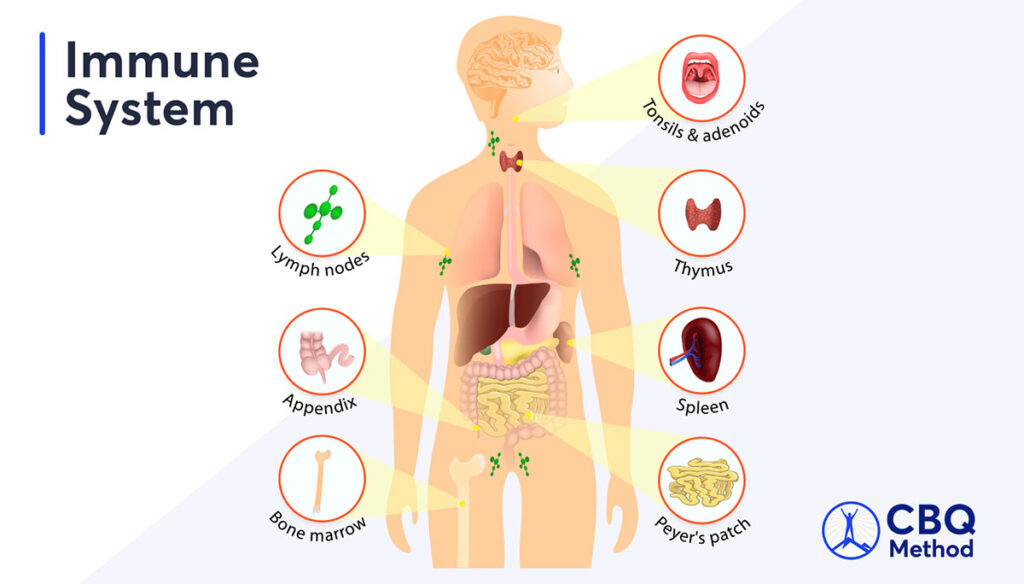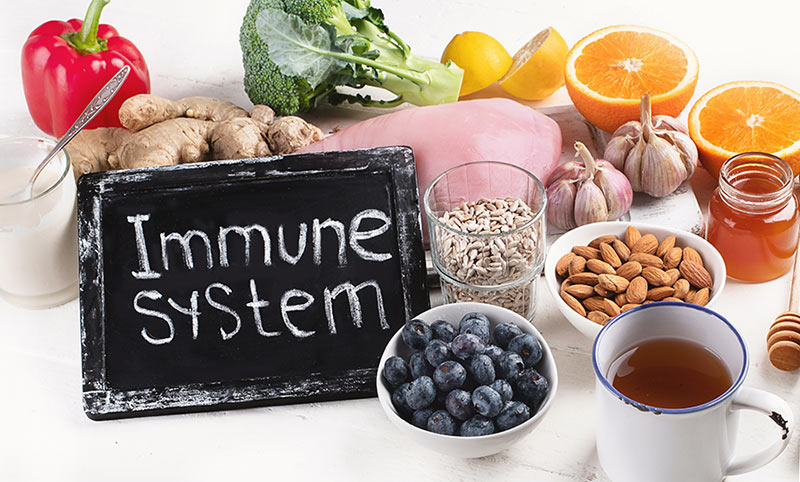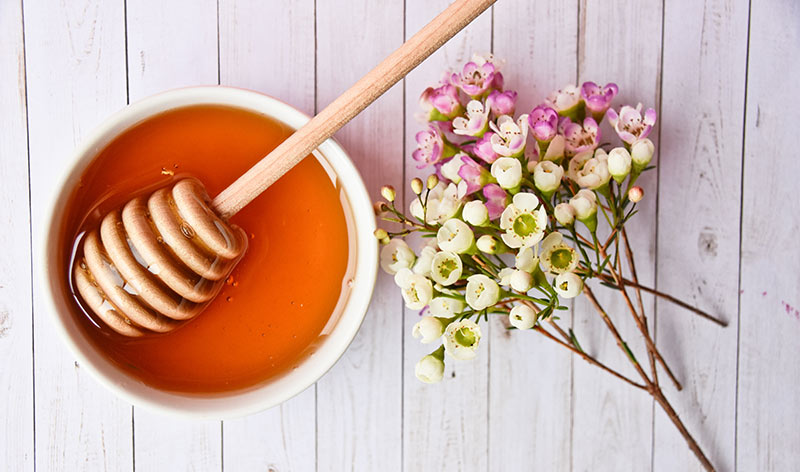A healthy immune system equals health, vitality, and life so this article will show you how to boost your immune system if you’re a smoker or ex-smoker.
The immune system is a hard-working complex function that acts as a shield against toxins, viruses, and disease. It’s in constant communication with every part of your body and it’s everywhere: on the skin, and the digestive, endocrine, and respiratory systems.

Now with the coronavirus epidemic, boosting our immune system is a priority.
Because there’s no cure yet; so your only line of defense against COVID-19 is your immune system.
So whether you have underlying health conditions or you’re healthy, the tips below will help you improve your immune system. For best results, do them consistently.
How to Boost your Immune System by Changing Habits
1. Stop Smoking
The most important thing you can do to strengthen your immune system is to quit smoking. This is the one thing that can hinder or accelerate all your other efforts.
It’s a long-known fact that smokers have compromised immune system and smoking increases the risk of immune and autoimmune disorders (conditions where the immune system attacks the body’s healthy cells)
Smoking also causes inflammation, which is your immune system trying to protect you against the chemicals in your cigarettes.

Does vaping weaken your immune system?
Yes.
Research shows vaping is not a good alternative for numerous reasons.
- Vaping is suppressing your immune system’s response at the gene level as much or even more than smoking
- causes inflammation
- harms lung cells preventing you from fighting a respiratory infection
- contains acrolein. A herbicide linked to lung injury, COPD, asthma and lung cancer
- changes your lung biology, even if it’s occasional or second hand vaping
Think about it like this. It’s hard for your immune system to protect you against the chemicals in your cigarettes and against the virus. So give your immune system a break by quitting smoking.
If you want to know more reasons why you need to be smoke-free during the coronavirus epidemic, check this video.
2. Reduce Alcohol
Try and reduce alcohol as much as you can to improve your immune system.
Chronic alcohol consumption, as well as short-term binge drinking, can disrupt the function of the innate immune system making it hard to defend against infection. Also, it can contribute to organ damage.
Alcohol alters the gut microbiome and disrupts communication between the organisms in the gut and the intestinal immune system. On top of that, it can contribute to pneumonia, and it’s linked to pulmonary diseases ( such as tuberculosis, respiratory syncytial virus, and ARDS.). This happens because it prevents the immune cells and epithelia from working properly and the cilia in your airways from clearing toxins.
Researches say “Often, the alcohol-provoked lung damage goes undetected until a second insult, such as a respiratory infection, leads to more severe lung diseases than those seen in nondrinkers.”
3. Meditate
Feelings of stress and anxiety may increase during quarantine, but “stress that’s not managed properly can actually lower your innate immune system”, said Dr. Zoe Vlamaki, Consultant General and Breast Surgeon at NHS.
So how can you manage emotions like stress and anxiety?
This, of course, does not include smoking. Smoking is a way to suppress emotions not manage them, which means they will resurface sooner or later. A healthy and effective way to manage your emotions is by meditating.
Meditation can reduce stress and the stress hormone cortisol that prevents the immune system from working properly.

Producing too much cortisol lowers the antibody IgA that lines the respiratory system and gut and protects you against pathogens. Research shows that meditation, even if it’s not too long, is boosting your immune system by increasing your IgA levels.
4. Don’t Dwell on Angry Feelings
Did you know that feeling angry weakens your immune system?
Our emotions affect our immune system and vice versa.
And feeling angry affects the body in many ways: it increases your heart rate and it releases cortisol.
Unfortunately, too much cortisol can impair the immune system and research shows that people who tend to be angry are more likely to get colds, flu infections, arthritis and asthma and also delay wounds from healing.
Of course, you can’t avoid feeling angry, and anger is not always bad. Sometimes it can be a warning sign that you need to make some changes in your life and the way you communicate.
What you can do, though, is tune in to a different, helpful, emotion as soon as you notice you’re feeling angry. An emotion you can tune into is gratitude. You can’t feel angry and grateful at the same time. I show you how in this video.
5. Cut Off Refined Sugar
Eliminate refined sugar from your diet to strengthen your innate immune system.

Some examples of refined sugar are:
- cookies
- cakes
- pastries
- white bread, pasta, crackers.
- soda, sports drinks, pre-made cold drinks
Refined sugar interferes with your hormones, metabolism and immune system. It can impair the function of your white cells and increase inflammation, which does not let your immune system work properly to fight infections.
It also causes insulin resistance that leads to type 2 diabetes which in turn, impairs the immune system.
And it impacts your adrenal glands, causing them to produce cortisol; the hormone that suppresses the innate immune system.
If you need to eat something sweet go for unrefined sugars such as honey, maple syrup, agave nectar, brown rice syrup, coconut sugar, fruit, date sugar.
6. Prioritize Sleep
Lack of sleep can activate your inflammatory immune response.
When you’re sleep deprived, some of your body’s immune cells, called T-cells, don’t work as well.
According to the Sleep Foundation, when you don’t sleep enough your body produces fewer cytokines. Cytokine is a protein that makes your immune system function.
7. Do Intermittent fasting
If your health allows it, fast 12-18 hours daily between your meals, drinking only water.
Fasting can help the immune system and research on mice showed that fasting for 2-3 days, can reboot the entire immune system.
The reason fasting helps, is that it lowers white blood cell counts which trigger the immune system to produce more white cells, says Valter Longo the research author.
8. Exercise

Exercise helps your mind and body in every way by regulating mood, weight, cardiovascular health, lung health and more. In addition, it reduces cigarette cravings by releasing endorphins.
But that’s not all. Moderate workouts can boost your immune system too and limit or delay immunological aging.
Epidemiologic studies have shown that regular physical activity is linked to decreased mortality, pneumonia, and inflammation. Exercise also has anti-inflammatory and antioxidant effects that become greater over time.
How to Boost your Immune System through Nutrition

9. Vitamin B6
Vitamin B6 supports the biochemical functions of the immune system. Research shows that deficiency in vitamin B6 can impact the immune system and that it’s needed for optimal immune function, especially when you’re older.
You can find vitamin B6 in:
- pork
- poultry (chicken, turkey)
- fish
- bread
- wholegrain cereals (oatmeal, brown rice)
- eggs
- vegetables
- soya beans
- peanuts
- milk
- potatoes
10. Vitamin C
Vitamin C is probably the best thing you can consume to help your immune system.
Lack of vitamin C can harm the immune function and increase how often and for how long you get sick.
Smokers tend to have vitamin C deficiency, so upping your intake may be necessary.
Taking sufficient vitamin C can protect you against infectious diseases. Plus, it keeps your cells, skin, blood vessels and bones healthy and it can help wounds heal faster.
How to strengthen your immune system with vitamin C:
- oranges and orange juice
- red and green peppers
- strawberries
- spinach
- kale
- blackcurrants
- broccoli
- brussels sprouts
- potatoes
If you wish to take vitamin C supplements prefer whole vitamin C instead of absorbic acid.

11. Vitamin D
Vitamin D is essential for calcium and bone homeostasis as well as the immune system function.
The deficiency of vitamin D is linked to more frequent infections as well as autoimmune disease.
How to boost your immune system with vitamin D:
- direct sunlight exposure on the skin
- oily fish – salmon, sardines, herring, mackerel
- red meat
- liver
- egg yolks
12. Zinc
Zinc helps the immune system by affecting neutrophils, NK cells, and cells related to innate immunity.
Research also shows that the elder population taking zinc supplements may be less likely to experience infections.
Zinc also has antioxidant properties, it helps in making new cells and enzymes, process nutrients from food and heals wounds.
How to improve your immune system with zinc:
- meat
- shellfish
- dairy foods
- bread
- wheatgerm
13. Manuka Honey
Manuka honey is proven to boost a weak immune system, decrease inflammation and fight bacteria.
Research shows that it also promotes oral health, can heal ulcers and wounds and it’s considered a natural cancer “vaccine”.

14. Ginseng
Ginseng can strengthen the immune system.
For example, a study found that people who took ginseng after having curative surgery could have up to a 35% higher chance of living disease-free for five years and up to a 38% higher survival rate compared to those not taking it.
Ginseng extract can also enhance the effect of vaccinations against diseases like influenza.
15. Probiotics
70-80% of the immune system cells are in the gut, or else, your “second brain”.
So having a healthier gut has a direct effect on your immune system and can stop you from getting sick, getting infections, allergies or autoimmune disease.
To improve your gut flora, you can take probiotics preferably coming in natural forms like those found in fermented foods, milk, and milk products.
Harvard Health suggests yogurt, kefir, kombucha, sauerkraut, pickles, miso, tempeh, kimchi, sourdough bread, and some cheeses.
16. Green Tea
Adding green tea to your diet can build the immune system up. Be careful not to drink it late in the evening because it has low levels of caffeine and may affect your sleep.
Green tea can also help prevent and treat diseases such as arthritis, cancer, diabetes, obesity, and infections.
Green tea contains flavonoids, that play a big role in the function of the respiratory immune system and can reduce the risk of getting a cold.
Note: This is not medical advice. Please ask your doctor before changing your nutrition or taking supplements.


